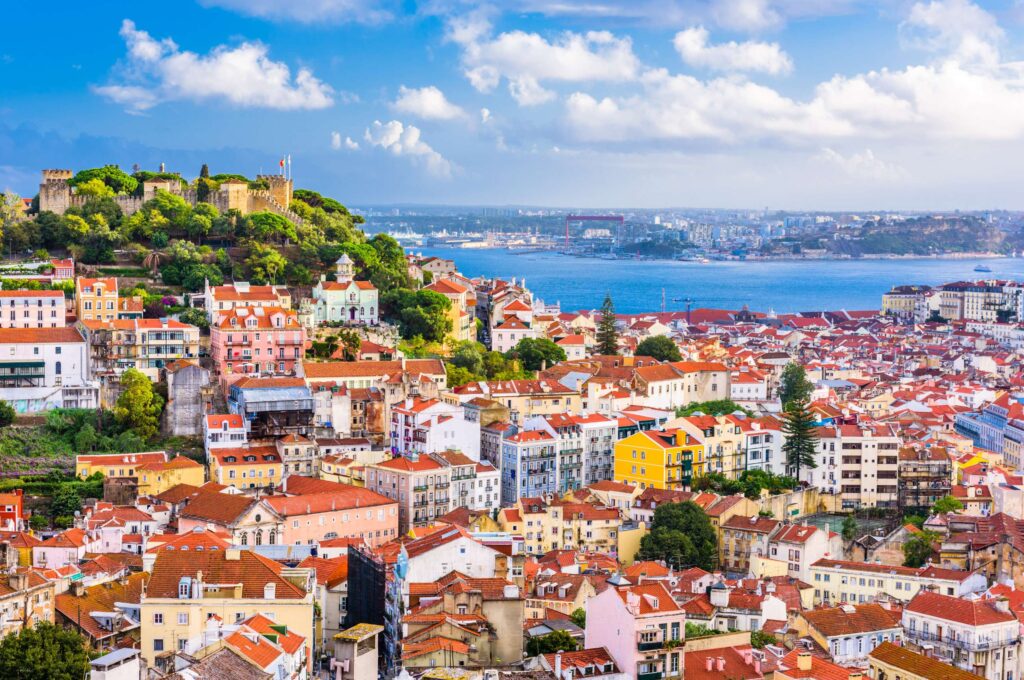So, you’re thinking of moving to Portugal — maybe for the sunshine, the surf, or the slow mornings with pastel de nata and espresso.
But then the big question hits you:
“What about taxes?”
Good question. Because Portugal, unlike some 0% tax havens, plays a more strategic game — one that can still help you save massively if you understand how the system works.
This is your guide to doing just that — understanding how taxes work in Portugal for expats, what the famous NHR regime is, and whether moving here makes sense for your situation.
Why Portugal Has Become a Global Magnet for Expats
Let’s start with why everyone seems to be moving to Portugal lately.
In the last decade, Portugal has gone from a quiet southern European nation to one of the most attractive relocation hubs for entrepreneurs, retirees, and remote workers.
Here’s why:
- Affordable lifestyle: Lower cost of living than Western Europe.
- EU access: Visa-free travel across the Schengen Zone.
- Residency options: Programs like D7 (for passive income) and the Golden Visa.
- And most importantly — the Non-Habitual Resident (NHR) tax regime.
The NHR is what really made Portugal famous among tax-savvy expats.
The Non-Habitual Resident (NHR) Regime — Explained Simply
The NHR is like Portugal’s “golden ticket” for new residents who want to reduce their taxes legally.
Under this regime, you could:
✅ Pay a flat 20% tax rate on income from high-value professions (like tech, consulting, and science)
✅ Pay 0% tax on most foreign-sourced income — including dividends, capital gains, and pensions — if they’re already taxed abroad (or eligible for tax exemption under double taxation treaties)
✅ Enjoy 10 years of reduced taxation — giving you long-term stability
💬 In plain English:
If you’re earning money from outside Portugal — say your clients or company are based in Dubai, the U.S., or Singapore — you could live in Portugal, enjoy the lifestyle, and legally pay little to no tax on that income.
How to Qualify for NHR Status
To qualify, you’ll need to check a few boxes:
- You must not have been a Portuguese tax resident in the last 5 years
- You must live in Portugal for at least 183 days a year, or have a permanent home there
- You must register as a tax resident and then apply for the NHR status
🕒 Timeline tip:
Once you register as a resident, you typically have until March 31 of the following year to apply for NHR.

Taxes in Portugal — Beyond NHR
Even under NHR, it helps to know the basics of Portugal’s tax system:
💶 Income Tax (IRS)
Progressive rates up to 48% for residents without NHR.
🏢 Corporate Tax
Flat rate of 21%, but small and medium enterprises (SMEs) pay less on the first €25,000 of profit.
💼 Capital Gains
Generally 28% for individuals, but exemptions may apply for reinvestment in property or other assets.
🏠 Property Tax (IMI)
Ranges between 0.3% and 0.8% of property value annually.
💸 VAT (IVA)
Standard rate: 23% (with reduced rates for essentials).
What If You’re a Digital Nomad or Remote Worker?
Portugal recently introduced the Digital Nomad Visa, designed for remote workers earning from abroad.
The visa gives you:
- The right to live in Portugal for up to 1 year (short-term) or renewable for up to 5 years (long-term)
- Access to the NHR regime (if you qualify)
- A tax structure that’s favorable if your income is foreign-sourced
💬 Example:
You’re a U.S.-based freelancer earning $100K a year.
Move to Portugal under the D7 or Digital Nomad visa → apply for NHR → pay almost 0% on your foreign-sourced income.
Common Myths About Taxes in Portugal
❌ Myth 1: “Portugal is a 0% tax country.”
✅ Reality: It’s not — but the NHR regime can make your effective tax rate very low.
❌ Myth 2: “NHR applies automatically.”
✅ Reality: You must apply for it and meet eligibility criteria.
❌ Myth 3: “NHR lasts forever.”
✅ Reality: It lasts 10 years, after which regular tax rates apply.

The Future of Portugal’s Tax System
As of 2024–2025, the Portuguese government announced plans to phase out the classic NHR regime, replacing it with a new, more targeted tax incentive for specific sectors (like tech, science, and innovation).
This means timing matters.
If you’re considering Portugal, the best time to act is now, before the old system is fully replaced.
Should You Move to Portugal for Tax Reasons?
If you’re chasing the absolute lowest tax rate in the world — places like Dubai or Monaco will beat Portugal easily.
But if you want a balance — sunshine, lifestyle, and still paying far less tax than in Western Europe or North America — Portugal is a solid middle ground.
💬 Think of it this way:
Portugal might not help you pay zero tax, but it’ll help you live better, save more, and still stay 100% compliant.
Final Thoughts
Portugal isn’t just a place to move — it’s a lifestyle upgrade with a smart tax advantage.
The key is understanding how to use the system the right way.
If you’d like to explore whether Portugal (or another country) fits your tax goals, our team at The Tax Pro can help you build a custom relocation and tax optimization plan — legally and transparently.

